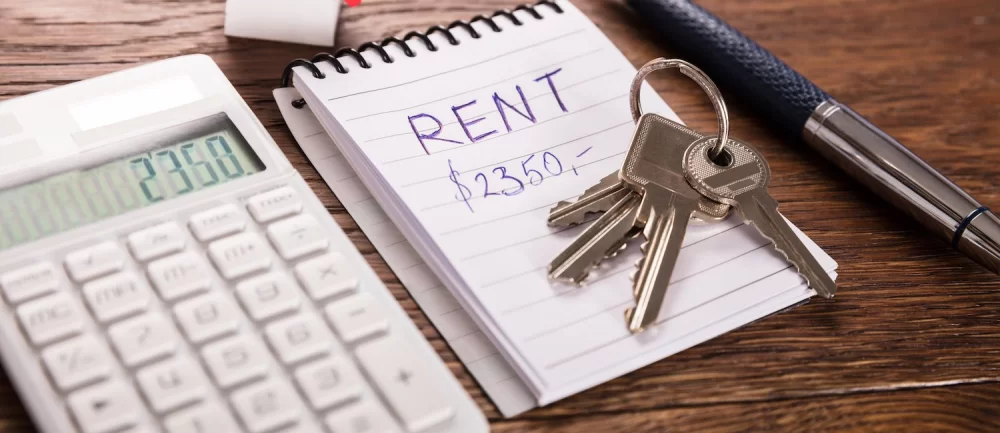
- Understanding Rent Negotiation and Why It Matters
- Preparation Before Negotiation: Research and Timing
- Strategies for Successful Rent Negotiation
- Real-Life Examples and Personal Insights on Rent Negotiation
- Leveraging Resources to Find the Best Rent Deals
1. Understanding Rent Negotiation and Why It Matters
Rent negotiation is often overlooked but can be one of the most impactful ways to reduce your monthly housing expenses. Many tenants assume rent prices are fixed, but in reality, landlords often expect some level of negotiation—especially in competitive rental markets or during off-peak seasons. Negotiating rent prices effectively not only saves money but can also improve your relationship with your landlord, leading to a more comfortable living situation.
It’s important to grasp that negotiation isn’t about confrontation but a mutual discussion where both tenant and landlord find common ground. The best tips for negotiating rent prices emphasize preparation, understanding market conditions, and approaching the conversation professionally and respectfully.
1.1 Why Rent Negotiation Works
Landlords want reliable tenants who pay on time and take care of the property. If they sense you are a responsible tenant, they may be more willing to adjust rent rather than risk vacancy or unreliable renters. Furthermore, factors like longer lease agreements, the condition of the rental market, and your tenant history all influence their flexibility.
1.2 Common Misconceptions About Rent Negotiation
One common myth is that only tenants with great credit or high income can negotiate rent. In truth, any tenant can try if they present a well-reasoned case. Another misunderstanding is that asking for a lower rent will damage tenant-landlord relationships. When done respectfully, negotiation can actually foster trust and open communication.
2. Preparation Before Negotiation: Research and Timing
Success in negotiating rent prices hinges on preparation. This phase is crucial to build your confidence and develop strong arguments that landlords find reasonable and appealing.
2.1 Research the Local Rental Market
Before initiating any negotiation, investigate comparable properties in your area. Check rental platforms, local listings, and even speak with neighbors or local realtors to understand average prices for similar units. If your rent is above market value, you have a solid foundation to request a reduction.
2.2 Choose the Right Time to Negotiate
Timing can dramatically influence outcomes. Many landlords prefer negotiating before lease renewal or during slower rental seasons. Approaching your landlord a few months before your lease ends shows responsibility and opens the door to discussion without last-minute pressure.
2.3 Prepare Your Tenant Profile
Gather positive information about yourself as a tenant—on-time payments, good maintenance of the unit, or willingness to sign a longer lease. Presenting these points shows you are a low-risk tenant deserving of a better deal.
3. Strategies for Successful Rent Negotiation
Negotiating rent prices is an art that combines communication skills, emotional intelligence, and strategic planning. Here are some effective approaches to help you succeed.
3.1 Start With a Polite and Professional Approach
Begin your conversation with appreciation for the property and landlord’s efforts, then introduce your request clearly and politely. Avoid aggressive language; instead, express your interest in continuing as a tenant if terms can be adjusted.
3.2 Highlight Your Value as a Tenant
Emphasize your reliability, willingness to sign longer leases, or to take on minor maintenance tasks. These points can justify why lowering your rent benefits the landlord as well.
3.3 Offer Alternatives to Lower Rent
If a direct reduction isn’t possible, suggest alternatives such as paying a few months upfront, helping with referrals, or accepting a lease renewal with slight concessions. Creative options often lead to a win-win situation.
3.4 Be Ready to Walk Away
While it’s important to negotiate, recognize when a landlord isn’t willing to budge. Having backup options or willingness to move can increase your leverage and prevent overpaying.
4. Real-Life Examples and Personal Insights on Rent Negotiation
One memorable case comes from a tenant in a busy city who discovered her rent was 15% above market rates. She approached her landlord with researched data, highlighting comparable units nearby and her history of prompt payments. After a calm discussion, the landlord agreed to a 10% rent reduction and extended her lease by a year, securing stable income for both parties.
Another tenant shared that offering to handle small repairs saved her $100 monthly in rent discounts. This demonstrated that sometimes negotiation extends beyond price to value-added benefits. These stories show the power of preparation and respectful dialogue in rent negotiations.
From personal experience, I’ve seen that landlords appreciate tenants who communicate early and openly about their intentions. It avoids surprises and fosters goodwill, which is crucial when negotiating rent prices.
5. Leveraging Resources to Find the Best Rent Deals
When negotiating rent prices, having access to reliable resources can significantly enhance your position. Platforms like Your Private Space provide curated listings, landlord reviews, and market insights to help you identify where you stand and where you might negotiate effectively.
Moreover, these resources often feature guides on tenant rights, negotiation tactics, and service providers who can assist with mediation if needed. Using such comprehensive support turns the negotiation from a daunting task into an achievable goal.
Whether you’re searching for the best rental unit or seeking negotiation advice, exploring specialized platforms ensures you get tailored recommendations and access to opportunities that align with your budget and preferences.








